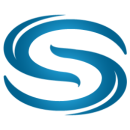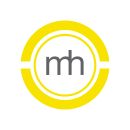Healthcare is one of the most complicated industries out there. For doctors, gathering and organizing all the information needed to effectively diagnose and treat patients remains a significant challenge. Then there’s the question of how best to engage with patients and make them feel like empowered stakeholders in their own healthcare.
And that’s just the clinical side. Along with these challenges come all the complications of running a business in a highly regulated industry.
Chicago is home to a plethora of tech companies working to make healthcare more streamlined. We reached out to employees at a few of them to find out what motivated them to pursue careers in one of tech’s trickiest verticals, and how they see their field developing over the next few years.

Every year, approximately 100,000 Americans die because of hospital-acquired infections — many of which spread because of poor hand hygiene among staff. SwipeSense builds sensors that track compliance with hand hygiene guidelines throughout hospitals in order to stem the spread of infection. CEO Mert Iseri co-founded the company with a fellow Nortwestern Engineering student.
Why did you decide to get into health tech?
I passionately believe in the power of technology to do good in the world. My co-founder and I came across this challenge while we were engineering students at Northwestern University's McCormick School of Engineering. Both of us were immediately obsessed with the scale of the problem, and what we could do to fix it. We couldn't get this out of our heads after graduation, and decided to turn our idea into a company after a few short months. It has been an awesome ride ever since.
What are the most exciting developments in health tech today?
The Internet of Hospital Things. Just like manufacturing and transportation industries, healthcare is on the verge of a connectivity and data revolution. This started with electronic medical records (EMRs) in the 2000s, but the real power and transformation will come from Big Data and the power of predictive analytics.
Where do you think health tech is headed over the next 10 years?
In the next few decades, I predict that every doctor will need an intelligent companion who can give them relevant and deep analysis on each of their cases, in real time. The data generated from the massive amounts of connected devices and EMR files will be the next frontier in reinventing medicine.

A provider of digital, interactive health information at examination- and waiting rooms across the country, ContextMedia helps patients get informed before making important healthcare decisions. The company’s suite of mobile applications and digital displays impact over 25 million patient visits monthly.
Senior product manager Riva Bakal has a background in finance analytics, but has been a product manager since 2010. She joined the ContextMedia team earlier this year.
Why did you decide to get into health tech?
I decided to get into health tech because it's an opportunity to improve lives in a concrete, measurable and meaningful way. In my day-to-day work, I am devising ways to improve the office visit experience for patients with chronic conditions, which is especially relevant to me, as I have family members with type 1 diabetes.
What are the most exciting developments in health tech today?
I see health tech focused on the point of care as tremendously impactful. At ContextMedia, we're working on products that facilitate more productive interactions between patients and providers by educating patients on how to better manage chronic conditions and live healthier through nutrition, exercise and other concrete actions.
We're also going beyond passive education by giving doctors clear and simple educational tools to use during patient visits. For example, if you are visiting a cardiologist, you may see a ContextMedia Digital Wallboard, which allows the doctor to show you a 3D model of the heart and explain how your particular condition affects you.
Where is health tech headed over the next decade?
Over the next 10 years, I think we'll see a convergence in some of the most interesting digital health technologies for consumers and health care providers. For example, wearable devices like the Apple Watch and Fitbit will eventually facilitate seamless communication between patients, providers and electronic medical record systems. Wouldn't it be great if the heart rate sensor on your Apple Watch sent data directly to your doctor, who could quickly use this information to reach out to you before problems happen?

Emmi creates interactive patient engagement solutions that help patients understand their healthcare, partake in decision making, prepare for procedures and manage recovery and chronic conditions. They do so by leveraging insights from social science, user experience and user interface research.
Emmi CEO Devin Gross is a former hospital administrator who joined Emmi in 2004.
Why did you decide to get into health tech?
I began my career over 20 years ago as a hospital administrator, and in that role I took part in a lot of meetings where we’d discuss investment, capital purchases and improvements in patient care. Most conversations revolved around adoption of new technology, but few people at the table actually knew anything about technology. I noticed a general lack of understanding about how to best design and implement technology to make meaningful improvements in healthcare, so I made a pivot in my career to enter into the healthcare technology space and try to fill that gap.
What are the most exciting developments in health tech today?
Today, consumers expect some level of technology in every aspect of their lives, as they do in banking, travel or shopping for example. It’s an expected norm, and while other industries have recognized the value of connecting more personally and meaningfully with consumers through technology, the healthcare industry has lagged in its acceptance of that concept. As healthcare continues to look for ways to drive efficiencies and consumers are demanding more innovation, healthcare is increasingly adopting new technologies. From both a personal perspective and an Emmi perspective, this is very exciting.
Where do you think health tech is headed over the next 10 years?
I think there is going to be a massive push toward personalization over the next 10 years. This will be across all aspects of healthcare — from clinical care to care management to general communications. As increasing amounts of data is available, there will be more opportunities to leverage this information to improve both outcomes and the overall healthcare experience. The industry is on the cusp of dramatic change and technology and innovation is leading the way.

SwervePay lets patients pay their medical bills via text message, and helps healthcare providers keep track of balances. By using text messaging — one of the most widespread and easy-to-use forms of communication out there — they increase payment resolution and reduce administrative costs for hospitals. CEO Jaeme Adams co-founded the company in 2010.
Why did you decide to get into health tech?
When looking at the healthcare industry, I saw opportunity to help the healthcare system remove a financial leakage out of the revenue cycle and put more time, energy and resources back into the important elements of healthcare, like taking care of patients. I saw how much money was being lost due to inadequate legacy technologies and thought, “Wow, if we can automate these processes, we can allow healthcare to stay focused on us.”
What are the most exciting developments in health tech today?
Most exciting to me is technology that allows instant accessibility to data — helping us, as consumers, have more control of our health and our society be healthier. An example of this is wearables, providing data on how many steps we take, our A1C levels, and so on. Or when companies use a cell phone to safely deliver one’s EHRs to one’s provider instead of waiting for a fax, for example.
Where is health tech headed over the next decade?
I believe in the next 10 years, we’re going to see all of our healthcare data accessible on any device, at any time, and sharable to anyone we desire. Having the right data, at the right time, with the right person is essential. And, having consumable, usable data is critical. This is what SwervePay is doing.
We as consumers are often timid or fearful about getting the results and answers we need from the healthcare system, so we often don’t ask our questions. With technology, consumers can communicate with providers through an environment that sets aside emotions and focuses on getting the answers we need.

Maestro Health helps companies navigate the world of healthcare with a platform that covers everything from choosing healthcare providers and onboarding new employees, to managing benefits and ensuring compliance with the Affordable Care Act. The company’s slogan is “Shop. Enroll. Live.”
Maestro CEO Rob Butler founded Maestro after serving as head of PayFlex, which was acquired by Aetna. He was joined in the venture by Tony Dillon — a former PayFlex colleague.
Why did you decide to get into health tech?
Dillon: I first came to health technology to join Rob Butler at PayFlex (our previous company). It was clear that the US healthcare market is a complex system and not always consumer-friendly. At Maestro Health, our focus on data and decision support technology can make a huge difference to consumers, helping them to both select and use healthcare products to their best advantage. Nimble, private companies that can focus their technology investment are a very exciting place to work — we can make a real difference every day.
Butler: We believed that most post-modern ACA vendors were good at one of the three key “Shop. Enroll. Live.” pieces, or maybe even two of them. But no one was offering an “all-in” solution — combining modern technology with personalized service — to bring all the pieces together.
 Maestro Health CTO Tony Dillon.
Maestro Health CTO Tony Dillon.
What are the most exciting developments in health tech today?
Butler: Cloud based, modular platforms are revolutionizing the benefits space as they are quicker to implement and don’t require excessive setup and integration fees. They also include compliance and security applications that earlier systems didn’t consider.
Dillon: We believe it’s improving data availability. There is an ocean of pertinent data that is not readily available (or easily digestible) in the critical moments it is needed, like: “What networks include my doctors? Based on my past claims, what plan should I pick? Which voluntary products can I choose to soften the blow of a high deductible plan? Does it matter where I get an MRI? This bill is way more than I expected… Can you help me negotiate a discount?” That’s where we’re finding an opportunity to truly innovate to help equip people to make those important choices.
Where do you think health tech is headed over the next ten years?
Butler: It will continue to focus more on the consumer, attempting a catch-up with all other consumer-centric aspects of our lives. Although employers will continue to offer healthcare, the future solutions will be customizable per participant and their respective situation, to combine health and financial well being, while accessible via mobile, wearables, and other devices offering real time service and data.
Dillon: Telemedicine, remote diagnostics and wearables have the potential to make a smartphone the center of your healthcare future.

Analyte Health is a consumer-focused digital diagnostics company. The company provides customers with on-demand access to doctors and counselors, as well as same-day lab appointments with most results delivered within 72 hours. Val Kolovos, Analyte’s director of software development, joined the company in 2011.
Why did you decide to get into health tech?
There is a tremendous opportunity to improve the overall healthcare system. Over the past 20 years, technology has changed so many things, from the way we communicate, find information and buy and sell goods, to how we travel abroad and get around town.
Analyte Health is poised to bring another big change, through technology, to a system that has long been fragmented and difficult to navigate. What drew me to health tech was the opportunity to engage people in healthcare in a consumer-centric way focused on convenience, simplicity and privacy.
What are the most exciting developments in health tech today?
Technology has made it easier to interact with nearly everything while on the go. Access to health care is following that trend. The most exciting developments in health tech today are the ability to securely access, and even generate, personal health information from anywhere and to securely share that information with medical professionals who can use it to create highly individualized care plans.
Where do you think health tech is headed over the next decade?
The ability to access and share information is becoming more critical to consumers and care outcomes. We’re starting to see improvements to access in EHR systems, but it still lags far behind other industries in convenience and user experience. In the next five to ten years, we’re going to see healthcare consumers gain more control of their information and — through guided interactions with physicians, nurses and other medical professionals — use that information to achieve highly effective outcomes.
Images via participating companies.









